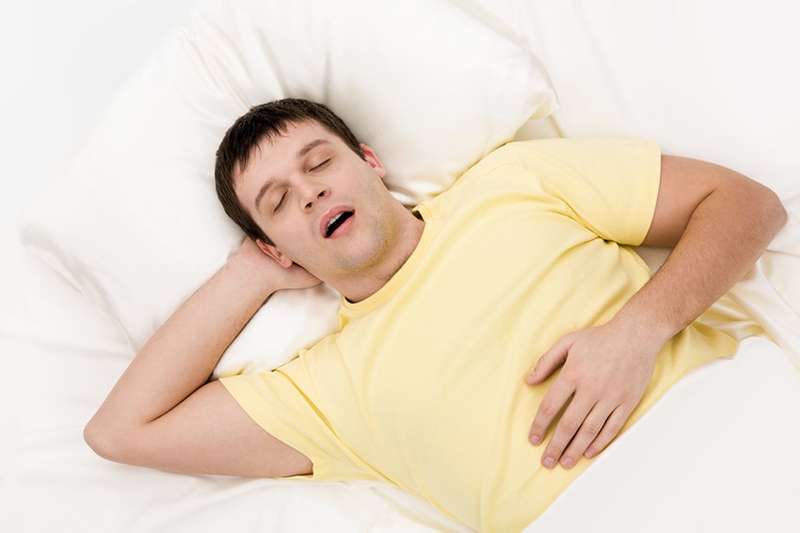It is quite common to hear some people joke that they are natural mouth breathers, however, it is no longer funny when you do most of your breathing using your mouth instead of your nose. Breathing through the mouth, especially in infants, can lead to malfunctions of the jaw, entire face, bad sleeping habits, digestive disorders and gingivitis. Also, when you breathe through the mouth, the body gets less air than when you breathe through the nose, and this can lead to very chronic oxygen deficiency. It can be quite easy for someone who wants to help you correct the problem to tell you to keep your mouth closed, but it can take a lot more than that to get this problem truly solved, try certain medically-recommended techniques if you need more help than merely keeping your mouth shut.

8 Essential Tips on How to Stop Mouth Breathing
Find the underlying causes and reasons
This is one very important step you must start with when it comes to how to stop mouth breathing. Like pointed out earlier, there are different reasons why mouth breathing happens in children and adult, so it is important you try to find out why this mouth breathing happens before trying to find a way to stop it. For instance:
If large tonsils are responsible, then you might consider having them removed.
If you have any history of memory-related issues which make your mouth fall open unconsciously, it means you are an habitual mouth breather, and you need to master the necessary steps that relate to constant reminding about how important nasal breathing is to you.
If yours is a structural problem, it means you need an orthodontic treatment to correct it.
Treatments aimed at stopping mouth breathing can only be effective if you know the root cause.
Understand how severe the problem of breathing true the mouth really is
Our natural body mechanics is disrupted by breathing through our mouth. A number of bodily functions can be affected by it and it can lead to certain symptoms like:
Headaches
Gum disease and gingivitis
Cold symptoms and sore throat
Bad breath and greater risks for cavities
Poor sleeping habits which leads to severe fatigue
Digestive problems, gas, acid reflux, stomach upset, etc
Oxygen deprivation accounts for most of these problems most times. When we breathe in air through our mouth, a lesser amount of oxygen will be absorbed into our bloodstream. Lower oxygen levels will always cause poor sleeping habits. In children, growth and academic performance can be affected by these two. There are some claims that it has a connection to ADHD and ADD.
Low oxygen concentrations in the bloodstream of adults have been linked to high blood pressure, sleep apnea, heart problems and other health problems.
Mouth breathing can also have significant effects on your bite and teeth. The orthodontic treatment has also been shown to be affected by the resting position of the lips and the position of the tongue – this can lead to a longer time on braces and increased risks of relapsing once the braces have been removed.
Try to force yourself
Force yourself to breathe through the nose as often as possible. Put down a note on your desk for yourself, or set a reminder on your smartphone that tells you to keep doing so. Try sitting up straight, keep your mouth closed and press back your neck a bit as you breathe in deeply through the nose. Most mouth breathers are known to maintain the head-forward position, which can lead to poor posture and back pains. It can also cause poor breathing in the long run.
Remove all allergens
Several things can give you nasal allergens. Things like your bed sheets and dusts can give you these nasal allergens. This makes the removal of allergens very important when it comes to learning how to stop mouth breathing.
Keep your house clean, especially the area where you sleep. This will help get rid of any pollen and every other particle that can irritate your nasal passages. It is important you wash your sheets as often as possible in hot water, get rid of any dusty items like old rugs from your bedroom and don't allow your pets sleep in your bedroom.
Use OTC
Find one over-the-counter nasal strip and wear it, put on a chin strap and use a nasal strip. These chin straps will stop your mouth from hanging open while you sleep to make it possible for you to breathe through your nose. Nasal sprays and nasal strips create room for nasal passages to open up to prevent the use of your mouth as your major airway.
Clean nasal passages if blocked
Clear your nasal passages with a nasal saline or a neti pot whenever you get the feeling that tells you they have been blocked. Some persons avoid breathing through the nose because their nasal passages do not provide adequate space for adequate supply of air, so these can be very good remedies.
Exercise regularly
Mind and body exercises like yoga always involve some breathing work, which helps you pay attention to breathing through your nose. Constant aerobic conditioning can equally help get your lungs and heart trained. These exercises help get your sympathetic nervous system working more efficiently, which constricts the blood vessels in your nasal region.
Visit a myofunctional therapist
Problems with overall health, orthodontic treatments, speech, dental health, breathing and swallowing can persist throughout your life if the breathing pattern is not re-visited. Hence, consulting a myofunctional therapist has been recommended as one of the most effective techniques when it comes to how to stop mouth breathing during the night. These myofunctional therapists are quite skilled at providing adequate help for both children and adults to enable them to gain control over their muscle patterning habits and master proper breathing habits.

View All Comments /Add Comment